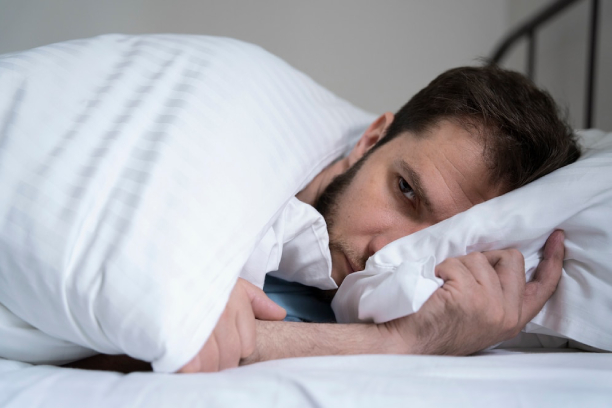Struggling to fall asleep, stay asleep, or wake up refreshed? Sleep issues aren’t always just about poor habits—they’re often tied to hormonal imbalances caused by stress, fatigue, and burnout. Your sleep-wake cycle, or circadian rhythm, is tightly regulated by key hormones and neurotransmitters.
Adrenaline (Epinephrine)
Adrenaline keeps you alert during stress. It’s designed to help the body respond quickly in emergencies. When adrenaline levels remain elevated into the evening (due to chronic stress or overthinking), the body struggles to “switch off.” This leads to racing thoughts, difficulty falling asleep, and frequent night-time awakenings. It’s the classic “tired but wired” feeling.
GABA (Gamma-aminobutyric acid)
GABA is the body’s main calming neurotransmitter. It helps the brain slow down, preparing the body for deep, restorative sleep. Low GABA makes it difficult to calm the mind and body before bed. This causes restlessness, light sleep, and difficulty staying asleep, leading to poor recovery and daytime fatigue.
DHEA (Dehydroepiandrosterone)
DHEA plays a protective role against stress and supports brain health and hormonal stability. Low DHEA is associated with poor sleep quality, especially in individuals under chronic stress or hormonal imbalance. It contributes to increased nighttime awakenings and reduces the body’s ability to handle stress during the night.
Cortisol
Cortisol follows a natural rhythm—rising in the morning to wake you up and lowering at night to allow sleep.
Low morning cortisol = hard to wake up, brain fog, and grogginess
Chronic imbalance flattens this curve, leading to insomnia or unrefreshing sleep.
Glutamate
Glutamate is the brain’s main excitatory neurotransmitter—it activates neurons and supports thinking, memory, and learning.
How Glutamate Affects Sleep:
To fall asleep, the brain must shift into a calmer, inhibitory state, primarily driven by GABA (a calming neurotransmitter).
This makes it harder to:
The Vicious Cycle:
Poor sleep increases glutamate levels and reduces clearance, especially if glial cells aren’t functioning well.
More glutamate = More overstimulation, leading to:
Research Insight:
Studies using MR spectroscopy show elevated glutamate in the anterior cingulate cortex and thalamus in people with insomnia.
People with chronic sleep deprivation also show signs of glutamate buildup, which impairs neuroplasticity and emotional regulation.








